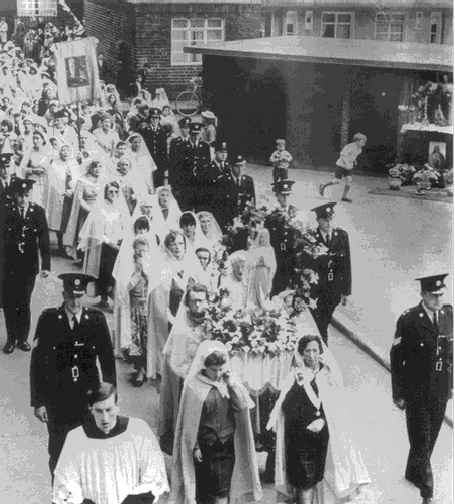By Diana O’Dwyer
Passed in 1983 after a campaign by the Catholic right, the 8th Amendment enshrines the right to life to a zygote, embryo or foetus from the glorious moment sperm meets egg and places it on an equal footing with the pregnant woman.
However, the so-called ‘Pro-Life Amendment’ is but one example of how the 1937 Constitution – and the backward political class that upholds it – discriminates against women and treats them as second-class citizens. Although some of its more blatantly theocratic elements have been removed, it remains a profoundly sexist document reflective of the ultra-conservative Catholicism of the 1930s. Drawn up under the equally conservative Catholic Taoiseach, Éamon de Valera, the Constitution was consciously modelled on Catholic social teaching.
The legacy of this period lives on in its opening section, which begins by genuflecting to ‘the Most Holy Trinity’ and ‘Humbly acknowledging all our obligations to our Divine Lord, Jesus Christ’. The god bothering continues in Article 44, which “acknowledges that the homage of public worship is due to Almighty God” and promises to “hold His Name in reverence”.
Despite the repeal of the constitutional ban on divorce in 1995, Article 41 also “recognises the Family as the natural primary and fundamental unit group of Society, and as a moral institution possessing inalienable and imprescriptible rights, antecedent and superior to all positive law” that is “the necessary basis of social order”. It duly guarantees to protect both it and “the institution of Marriage” – from which all families are still assumed to arise, despite decades of women’s suffering at the hands of Church and State in penal Mother and Baby Homes and the reality that a third of Irish babies are now born outside of “wedlock”.
Another illustration of the Constitution’s outdated sexism is its assertion “that by her life within the home, woman gives to the State a support without which the common good cannot be achieved” and accompanying pledge to “endeavour to ensure that mothers shall not be obliged by economic necessity to engage in labour to the neglect of their duties in the home”.
This may sound like a bad joke to the thousands of women forced out of the workforce by the lack of free, state-provided childcare in this country – which is in perfect accordance both with Catholic social teaching and an anaemic neoliberal welfare state further starved of resources by seven years of austerity.
The contrast between this backward view of women and the family and the progressive measures introduced after the Russian Revolution in 1917 could not be sharper.
Where holy Catholic Ireland confined married women to the home and unmarried women to Magdalene Laundries, and denied the existence of sex outside marriage, the new Bolshevik government abolished illegitimacy, repealed all laws against consensual sexual activity, including homosexual acts, legalised divorce, introduced free, safe, legal abortion on request, and encouraged women to enter the workforce through free state-provided childcare.
We can take inspiration from these achievements and learn that opposing the backward constitution needs to be linked by an anti-capitalist struggle for socialist change.












